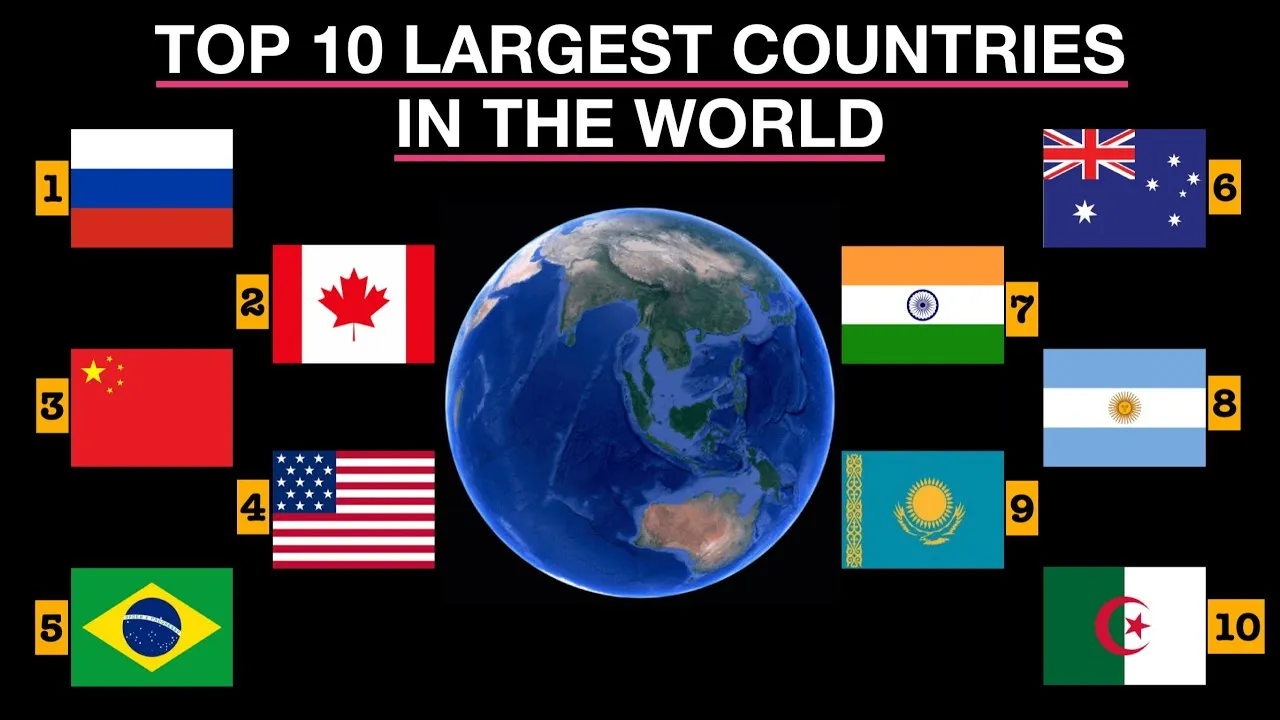The Largest Country on Earth by Land Area
Introduction
The world is home to 195 countries, each varying in size, population, and geographical significance. Among them, one country stands out as the largest in terms of land area—Russia. Spanning across two continents, Europe and Asia, Russia is an immense nation with a diverse landscape, rich history, and significant global influence. This article explores Russia’s vast size, geographical features, climate, cultural diversity, and its impact on the world.

Russia’s Enormous Land Area
Russia covers a staggering 17.1 million square kilometers (6.6 million square miles), making it the largest country in the world by land area. To put this into perspective, Russia occupies about 11% of the world’s total landmass and is nearly twice the size of Canada, the second-largest country. It stretches from Eastern Europe to the Pacific Ocean and shares borders with 16 countries, more than any other nation.
The country spans 11 time zones, making it the only country where one can experience sunrise and sunset at vastly different times across its territory. This enormous landmass encompasses a variety of terrains, including tundras, forests, mountains, and vast plains.
Geographical Features of Russia
1. Mountains and Plateaus
Russia is home to several mountain ranges, including the Ural Mountains, which traditionally separate Europe and Asia. The Caucasus Mountains, located in the south, contain Mount Elbrus, the highest peak in Russia and Europe, standing at 5,642 meters (18,510 feet) above sea level.
2. Lakes and Rivers
Russia is abundant in freshwater resources, with Lake Baikal being one of its most famous landmarks. It is the world’s deepest and oldest freshwater lake, containing around 20% of the Earth’s unfrozen freshwater. The Volga River, the longest river in Europe, plays a crucial role in Russian transportation and economy.
3. Forests and Tundra
The Siberian region, covering much of Russia, is known for its vast forests, particularly the Taiga, which is the largest biome in the world. Northern Russia is dominated by tundra, a treeless, frozen landscape that supports unique wildlife such as reindeer and polar bears.
Climate Variations Across Russia
Due to its immense size, Russia experiences a wide range of climatic conditions:
- Arctic Climate: Found in northern Siberia, where temperatures can drop as low as -50°C (-58°F) in winter.
- Continental Climate: Central Russia experiences hot summers and cold winters, with extreme temperature variations.
- Subtropical Climate: The Black Sea coast in the south enjoys a milder climate, making it a popular destination for tourism.
Cultural and Ethnic Diversity
Despite its vast size, Russia has a population of approximately 144 million people, making it the ninth most populous country in the world. The majority of the population resides in the western part of the country, particularly in cities like Moscow and Saint Petersburg.
Russia is a multicultural nation, home to over 190 ethnic groups and indigenous communities. While Russian is the official language, many regions have their own languages and cultural traditions. The country has a rich artistic heritage, with contributions to literature, music, ballet, and cinema recognized worldwide.
Russia’s Global Influence
As the world’s largest country, Russia plays a crucial role in global politics, economics, and environmental matters. It has one of the largest reserves of natural resources, including oil, gas, and minerals. The country is also a key player in space exploration, having launched the first satellite, Sputnik, and sending the first human, Yuri Gagarin, into space.

Conclusion
Russia’s status as the largest country on Earth is not just a matter of size—it is a nation of remarkable geographical features, diverse climates, and cultural significance. Its vast landmass presents both opportunities and challenges, from economic potential to environmental concerns. As a global superpower, Russia continues to shape the world in various ways, making it a fascinating country to study and explore.

